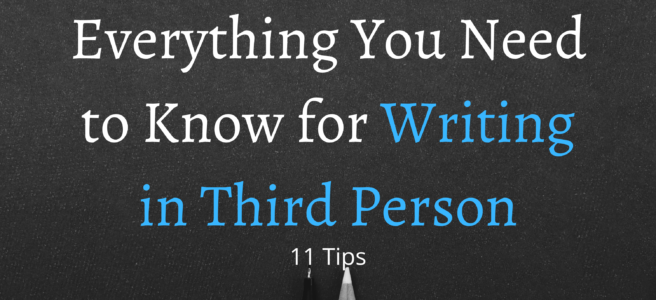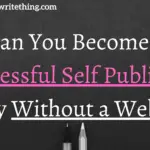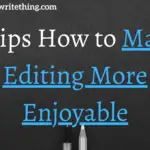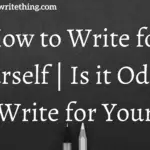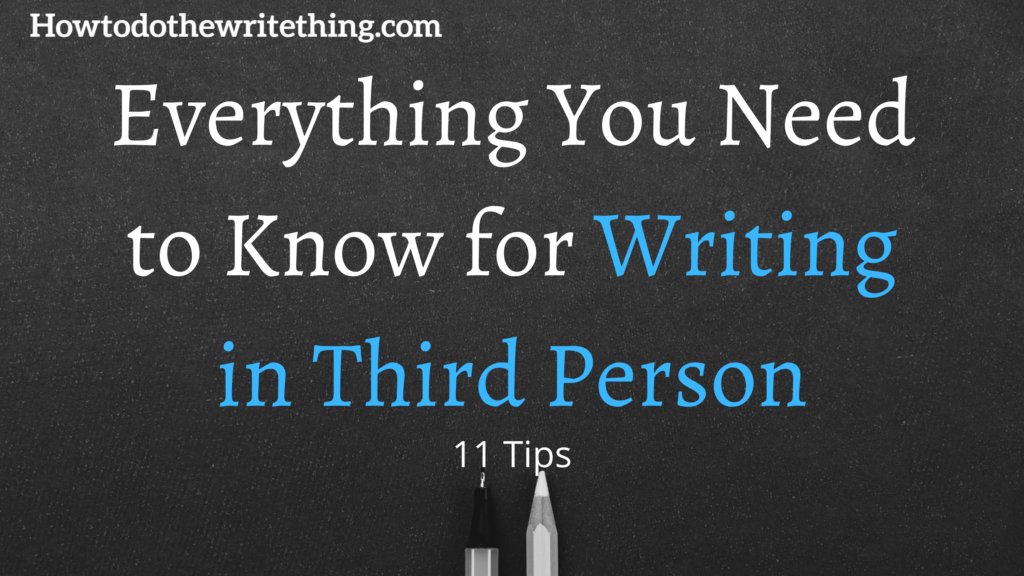
Everything You Need to Know for Writing in Third Person
What is writing in third person point of view?
“In third-person point of view, the author is narrating a story about the characters, referring to them by name, or using the third-person pronouns “he,“” she,” and “they.” The other points of view in writing are first person and second person.” Source.
What does writing in third person mean?
“When you are writing in the third person, the story is about other people. Not yourself or the reader. Use the character’s name or pronouns such as ‘he’ or ‘she’.”
What are the 3 types of third person point of view?
1. Third-person omniscient point of view:
“The omniscient narrator knows everything about the story and its characters. This narrator can enter any character’s mind, move freely through time, and give the reader their own opinions and observations as well as those of the characters. For example, Jane Austen’s Pride and Prejudice is told from a third-person omniscient point of view, giving the reader full access to the main character, Elizabeth, as well as the characters around her.” Source.
2. Third-person limited point of view:
“The third-person limited point of view (often called a “close third”) is when an author sticks closely to a single character but remains in third-person. The narrator can do this for the entire novel or switch between different characters for different chapters or sections. This point of view allows the author to limit a reader’s perspective and control what information the reader knows. It is used to build interest and heighten suspense.” Source.
3. Third-person objective point of view:
“Third-person objective point of view has a neutral narrator that is not privy to any character’s thoughts or feelings. The narrator presents the story with an observational tone. Ernest Hemingway employs this third-person narrative voice in his short story “Hills Like White Elephants.” An unknown narrator relays the dialogue between a couple as they wait for a train in Spain. This point of view puts the reader in the position of a voyeur, eavesdropping on a scene or story.” Source.
Writing in third person examples:
Famous Quotes written in third person:
- “Those who find ugly meanings in beautiful things are corrupt without being charming. This is a fault. Those who find beautiful meanings in beautiful things are the cultivated. For these there is hope. They are the elect to whom beautiful things mean only Beauty. There is no such thing as a moral or an immoral book. Books are well written, or badly written. That is all.” ― Oscar Wilde, The Picture of Dorian Gray
- “No tears in the writer, no tears in the reader. No surprise in the writer, no surprise in the reader.”― Robert Frost
- “Read, read, read. Read everything — trash, classics, good and bad, and see how they do it. Just like a carpenter who works as an apprentice and studies the master…” ― William Faulkner
- “Fantasy is hardly an escape from reality. It’s a way of understanding it.” ― Lloyd Alexander
- “A dreamer is one who can only find his way by moonlight, and his punishment is that he sees the dawn before the rest of the world.” – Oscar Wilde
- “A pessimist sees the difficulty in every opportunity; an optimist sees the opportunity in every difficulty.” – Winston Churchill
- “A person who never made a mistake never tried anything new.” – Albert Einstein
- “Life is a succession of lessons which must be lived to be understood.” – Helen Keller
- “Music expresses that which cannot be said and on which it is impossible to be silent.” – Victor Hugo
- “Failure is simply the opportunity to begin again, this time more intelligently.” – Henry Ford
- “Family is not an important thing. It’s everything.” – Michael J. Fox
- “It is not a lack of love, but a lack of friendship that makes unhappy marriages.” – Friedrich Nietzsche
- “A bird doesn’t sing because it has an answer, it sings because it has a song.” – Lou Holtz
Third person writing in everyday advertising:
- Plop Plop Fizz Fizz. Oh, what a relief it is – Alka-Seltzer
- The King of Beers – Budweiser
- It’s the real thing – Coca-Cola
- A diamond is forever – De Beers
- The happiest place on earth – Disneyland
- It keeps going and going and going – Energizer
- When it absolutely, positively has to be there overnight – FedEx
- The Possibilities are Infinite – Fujitsu
- The best a man can get – Gillette
- It wouldn’t be home without Hellmann’s – Hellman’s
- It’s finger lickin’ good – KFC
- Nobody can do it like McDonald’s can – McDonald’s
- Good to the last drop – Maxwell House
- Maybe she’s born with it. Maybe it’s Maybelline – Maybelline
- The greatest tragedy is indifference – Red Cross
- Takes a licking and keeps on ticking – Timex
Third person point of view examples are all around us. We just have to keep an eye-out for them.
Third person writing in Known Literature:
- “”What are you doing?” Yossarian asked guardedly when he entered the tent, although he saw at once.”There’s a leak here,” Orr said. “I’m trying to fix it.” – Joseph Heller, Catch 22
- “Please stop it,” said Yossarian. “You’re making me nervous.” – Joseph Heller, Catch 22
- “When I was a kid,” Orr replied, “I used to walk around all day with crab apples in my cheeks. One in each cheek.” – Joseph Heller, Catch 22
- “Yossarian put aside his musette bag from which he had begun removing his toilet articles and braced himself suspiciously. A minute passed. “Why?” he found himself forced to ask finally.” – Joseph Heller, Catch 22
- “Orr tittered triumphantly. “Because they’re better than horse chestnuts,” he answered.” – Joseph Heller, Catch 22
- “When Jane and Elizabeth were alone, the former, who had been cautious in her praise of Mr. Bingley before, expressed to her sister how very much she admired him.” – Jane Austin, Pride and Prejudice
- “He is just what a young man ought to be,” said she, “sensible, good humoured, lively; and I never saw such happy manners! — so much ease, with such perfect good breeding!” – Jane Austin, Pride and Prejudice
- “He is also handsome,” replied Elizabeth, “which a young man ought likewise to be, if he possibly can. His character is thereby complete.” – Jane Austin, Pride and Prejudice
- “It was a bright cold day in April, and the clocks were striking thirteen.” – George Orwell, 1984
- “Their commander was a middle-aged corporal-red-eyed, scrawny, tough as dried beef, sick of war. He had been wounded four times-and patched up, and sent back to war.” – Kurt Vonnegut, Slaughterhouse-Five
- “It was a dark and stormy night; the rain fell in torrents, except at occasional intervals, when it was checked by a violent gust of wind which swept up the streets.” – Edward George Bulwer-Lytton, Paul Clifford
- “He drank an Anis at the bar and looked at the people. They were all waiting reasonably for the train. He went out through the bead curtain. She was sitting at the table and smiled at him.” – Ernest Hemingway, “Hills Like White Elephants”
- “She walks in beauty, like the night
Of cloudless climes and starry skies;
And all that’s best of dark and bright
Meet in her aspect and her eyes”
– Lord Byron, “She Walks in Beauty”
Third person writing academic example:
“Third-person point of view identifies people by proper noun (a given name such as
Ella Clark) or noun (such as teachers, students, doctors, or players) and uses the
pronouns he, she, and they. Third person also includes the use of one, everyone, and
anyone. Most formal, academic writing uses the third person. Note the use of various
third-person nouns and pronouns in the following:
“The bosses at the factory have decided that employees need a day of in-house
training. Times have been scheduled for everyone. Several senior employees will
be required to make five-minute presentations. One is not eager to speak in front of
others since she’s very shy. Another one, however, is anxious to relate her
expertise. The variation in routine should provide an interesting day for all people
concerned.””
“Use third person for all academic writing:
For formal writing, such as research and argumentative papers, use the third person. Third person makes your writing more objective and less personal. For academic and professional writing, this sense of objectivity allows the writer to seem less biased and, therefore, more credible.[1]
Third person helps the writing stay focused on facts and evidence instead of personal opinion.”
How to write in third person about yourself.
Even though third person speaks about others and doesn’t use the pronouns I or we, how do I write about myself in third person?
Just use a story or event that you experienced and give the character you are following (yourself) a different name and write about that character as if you were talking about someone else. “Jimmy went to the park. He rode his bike there. On the way, he crashed. He had to go to the ER.” Even if those events really happened to you, you were still able to write about your true to life experiences in the third person.
Tips and Tricks for Writing in Third Person:
1. Create a narrator’s voice
When writing in third person, speak with authority. Show your reader that the narrator’s voice is trustworthy. Give them the inner thoughts of at least one character. The main narrator voice you use will give them the idea that you are in-the-know and can carry them well through the events to come.
2. Make sure to use the right pronouns
“Third person pronouns include: he, she, it; his, her, its; him, her, it; himself, herself, itself; they; them; their; themselves.”
3. If you choose third person objective point of view the narrator doesn’t know what anyone is thinking
If you choose this point of view remember that you are just an observer. You will have to make a point to work harder on conveying the emotions each character is experiencing. The reader won’t get to hear the inner feelings and thoughts of any of the characters. That makes it really important to emphasize the right character facial expressions and describe them adequately but not overdo it.
4. Be aware of singular and plural pronoun use.
“Incorrect example: “The witness wanted to offer anonymous testimony. They’ were afraid of getting hurt if their name was spread.”
“Correct example: “The witness wanted to offer anonymous testimony. He or she was afraid of getting hurt if his or her name was spread.”
5. If you write in third person limited you only know what the protagonist knows
If you write in third person limited, remember that you are limited by the same knowledge that the main character you are following knows. Be strategic with this and give the reader the same feelings the protagonist has at their limited knowledge of the events befalling them.
6. Avoid slipping into other points of view
It is easy while you are writing to accidentally and mindlessly slip into first and second person point of view.
When you go back to edit, keep this in mind and watch out for any accidental “I” or “you” statements.
7. Understand that there are 3 types
Be sure to glance up at the top of this post and see that there are 3 different types of third person point of views. Choose wisely as you begin your story which one you would like to limit yourself to or not limit to.
My personal favorite to date is definitely third person omniscient. I like being able to say whatever whenever and even break down the third wall at times just for fun.
8. Watch your pronouns and be consistent
Whichever style you choose to start out, stick with it. Be consistent or it may take away from the story if you jump in and out of multiple points of view. (I would say multiple points of view is possible, but only for the right kind of story.)
9. You can use second and first person in dialogue
Don’t forget to use your character’s dialogue to its full advantages. “I’m tired,” “I’m hungry,” “can we slow down?” “Is it hot or is it just me?” “You’re a liar!” “You melt my heart and soul.”
Just because you can’t say “you” or “I” doesn’t mean your character can’t. Just because your character doesn’t know how someone is feeling, doesn’t mean that character can’t say it out loud at the appropriate times to give your reader an inside look at another character’s personality.
10. Have a strategy for when you switch viewpoints
In the movie “Wonder,” they do an awesome job of switching viewpoints strategically and at pivotal moments.
This does a lot for the audience. We are surprised to get to go into the life of another character and get to know them intimately just like we did the main character.
11. Follow the character with the most weight
If you have a dynamic cast of characters, how do you choose which one to follow?
Margaret Atwood would say, “When choosing which character will serve as your main point of view for any chapter or scene, hone in on the person who has the most to lose or learn.”
This might change depending on what part of the plot you are headed into, but if it just follows one or two characters the entire time choose the one that has the most to lose.
Interested in starting a blog of your own? Check out Bluehost.
After checking out Bluehost, see how we made a profit FAST with our blog and how you can too: Our #1 Easy way that we made a profit with our blog on year 1, not year 5.
Need a Cheaper Plan? Try DreamHost.
Try Grammarly, The Free tool that should be in every writer’s toolbelt.
Hope this helps!
Happy Writing!
Another Post you Might like:
Mythical Creatures | 7 Tips on How to Write Mythical Creatures
Other Popular Posts you might enjoy:
5 Tricks How to Hide Your Villain Right Before Their Eyes
10 Tips How to Write Villains that Play Mind Games with Their Victims
4 Tips How to Write your Character Hitting Rock Bottom
10 Toxic Bad Habits That’ll Crush Your Fictional Character’s Relationships
How to Write From Your Villain’s Mind.
How To Write 4 Scenes That Reveal Who Your Character Is Seamlessly
Psychopath: How to Write The Perfect Psychopath
8 Tips How to Write the Perfect Sociopath
Fictional Characters: 28+ Bad Habits to Introduce to Your Fictional Characters
List of 10 Weapons for Fictional Characters
List of 10 Bad Habits Fictional Characters Need Help Breaking
Resources:
How to Start a Blog in 11 Simple Easy Steps in 2020
How to Write a Book: 32 Tips | Your MASSIVE Guide How to Write a Book
Define Self-Esteem for Writing Characters: 10 Ideas
Covert Narcissist and Why You Should Write One
Inspiring Quotes Posts:
Inspiring Quotes | 101+ Inspirational Quotes to Motivate You Today
190+ Inspirational Quotes for Women
303+ Funny Inspirational Quotes
115+ Inspirational Quotes in Short
103+ Quotes About What is Love
This post:
Everything You Need to Know for Writing in Third Person | 11 Tips
Interested in starting a blog of your own? Check out Bluehost.
After checking out Bluehost, see how we made a profit FAST with our blog and how you can too: Our #1 Easy way that we made a profit with our blog on year 1, not year 5.
Need a Cheaper Plan? Try DreamHost.
Try Grammarly, The Free tool that should be in every writer’s toolbelt.
Everything You Need to Know for Writing in Third Person
Enjoying Everything You Need to Know for Writing in Third Person? Take a moment and consider sharing this social-friendly image to say thanks and feel free to comment with your thoughts below! 🙂
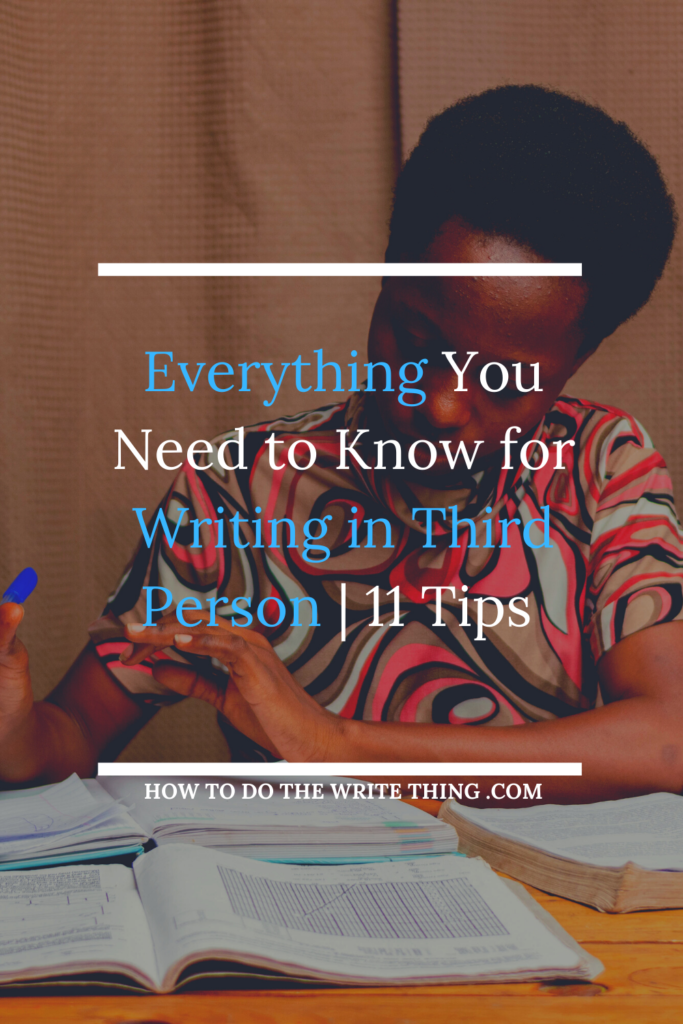
Interested in starting a blog of your own? Check out Bluehost.
After checking out Bluehost, see how we made a profit FAST with our blog and how you can too: Our #1 Easy way that we made a profit with our blog on year 1, not year 5.
Need a Cheaper Plan? Try DreamHost.
Try Grammarly, The Free tool that should be in every writer’s toolbelt.
Make sure your posts are readable. Use this readability score check
Want to check out a writer’s community to test your writing and get feedback?
Check out these FREE trial resources from Amazon for when you work from home (or are stuck at home 🙂 ) As an Amazon associate, if you do sign up or buy anything using Amazon links from our site we make a commission at no extra cost to you.
Free Prime Membership Trial:
Try Amazon Prime 30-Day Free Trial
Try Prime Discounted (Free Trial)
Make your Free Amazon Wedding Registry:
Create an Amazon Wedding Registry
Get Free Video Channels Trial with Prime:
Join Prime Video Channels Free Trial
Try a Free Amazon Family Trial:
Join Amazon Family (30-day Free Trial)
Get Unlimited Music for Free (30-day free trial):
Free movies and TV shows trial:
Join Amazon Prime – Watch Thousands of Movies & TV Shows Anytime – Start Free Trial Now
Free Prime for students trial:
Free Baby Registry:
Shop Amazon – Create an Amazon Baby Registry
Free trial of Twitch Prime:
And for when you REALLY work at home:
Create Amazon Business Account
It is the Amazon you love, for work. Make workplace procurement easier with convenient delivery options, simplified purchasing workflows, multiple payment options, and a competitive marketplace with business-only pricing and quantity discounts. Anyone who makes purchases for work (eg. procurement specialists, office administration, IT departments, etc.) can create a FREE account for their business. Customer must be from a verified business in order to successfully create their Amazon Business account.
Everything You Need to Know for Writing in Third Person
Enjoying Everything You Need to Know for Writing in Third Person? Take a moment and consider sharing this social-friendly image to say thanks and feel free to comment with your thoughts below! 🙂
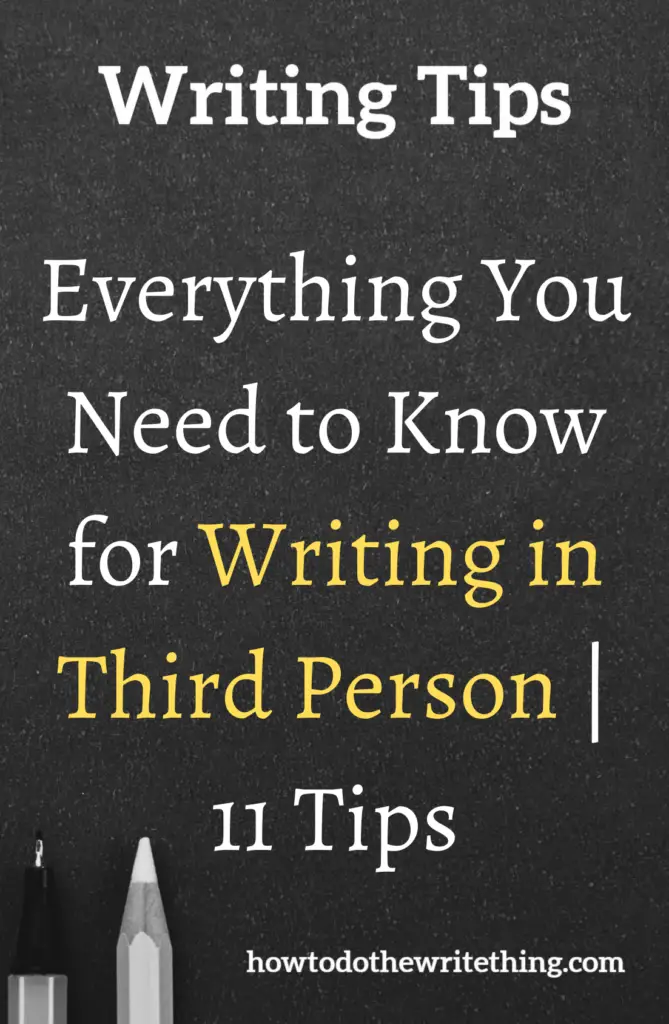
Interested in starting a blog of your own? Check out Bluehost.
After checking out Bluehost, see how we made a profit FAST with our blog and how you can too: Our #1 Easy way that we made a profit with our blog on year 1, not year 5.
Need a Cheaper Plan? Try DreamHost.
Try Grammarly, The Free tool that should be in every writer’s toolbelt.
We hope you enjoyed: Everything You Need to Know for Writing in Third Person!
